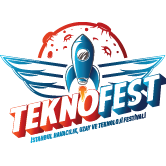 “We are offering highest quality education and research opportunities to our students in the METU Bioinformatics Programs.”
“We are offering highest quality education and research opportunities to our students in the METU Bioinformatics Programs.”
“Such genetic and genomic testing is available in Turkey and some even used routinely and the medical research and industrial sectors closely follow the advancements around the world. So we have the necessary biotechnological build-up in Turkey, but the main challenge of Turkish companies focused on personalized medicine is mainly to find the funding and resources to set up large scale experimental research with patients and to offer these applications to every patient who needs.”
“We have developed desktop software called METU-SNP (Single Nucleotide Polymorphisms) and this program is capable of analyzing statistical associations between SNPs and different diseases and also prioritizes them and offers the researcher a list of SNPs that is most likely to have a biological effect among the statistically significant ones.” “…in a parallel project we are transforming the METU-SNP desktop application into a web-based program which will be served worldwide online as a bioinformatics tool through METU. We hope to reach more researchers worldwide with the online version of the application.”
“Informatics Institute and our program encourage innovation and entrepreneurship among both our faculty and students.”… “I advise the students of our programs to look also at the industrial side of the picture of bioinformatics and personalized medicine applications throughout their graduate education in order to have more options for after graduation. While encouraging them to continue their education abroad I also want them to gain the vision and thinking from industrial perspective in their research areas.”
"....GENformatik Company, as a spin-off from METU Bioinformatics Program. The focus of GENformatik is to develop new genomic diagnostics to recognize SNP variations of schizophrenic patients. The genomic testing and the clinical decision support software that is planned to be developed will guide the physiatrists about the right choice of anti-psychotic drugs for the treatment; based on patients’ genomic information instead of the current trial and error approach."
“At the world championships of iGEM, we obtained the “Best Use of Registry” Special Award. Basically we have built a web-based software where all molecular biologists can visit and use to design their molecular machine. Depending on the input and output parameters the “Mining for BioBricks” M4B software intelligently searches all the available biological parts in the part registry of iGEM, and provides the possible constructs to the researchers.”
Interview with Assist. Prof. Dr. Yeşim AYDIN SON, METU Informatics Institute, Health Informatics Department
By Tuğba Gürçel
Tuğba Gürçel: Thank you very much for accepting our interview request. I would like to start with your academic career and how you have focused in the field of bioinformatics…
Yeşim Aydın Son: Thank you for visiting us and giving the Health Informatics Department this spot.
I have graduated from Hacettepe University Medical School in 1999 as a medical doctor and continued my education in University of TN, Knoxville USA at the Graduate School of Genome Sciences and Technology. During my doctoral studies I have worked on tumor susceptibility markers in mammalian skin tissue with the Functional Genomics Group at Oak Ridge National Laboratories. After graduation I have moved to Los Angeles, California and continued my studies as a post-doctoral fellow in the Department Molecular Medicine at the City of Hope National Medical Center. Between the years of 2007-2009 I have worked on identification of methylation biomarkers in human oncogenes and developing diagnostic tools for the detection of their methylation status. In 2009, after moving back to Turkey with my family, I have heard about the Department of Health Informatics and the open position in the newly established Bioinformatics Graduate Program. At that time this offer sounded like the perfect position given my academic background and turned out to be one of the greatest opportunities for my career. I have recently been appointed as the Chair of Health Informatics Department after serving as the Bioinformatics Program Coordinator for 3 years.
TG.: So you have mainly focused on bioinformatics. Could you please tell us what bioinformatics is?
Y.A.S.: Bioinformatics is the application of computer science, statistics and information technology to the field of molecular biology and medicine. Bioinformatics generates new knowledge from biological data, and also creates new methodologies and tools to analyze the high dimensional biological data.
TG.: What is the recent status of bioinformatics in Turkey and what is the contribution of METU to this environment?
Y.A.S.: Parallel to the development of the bioinformatics field in the world, there have always been individual researchers from different disciplines concentrated on bioinformatics in Turkey. As one of the frontiers of bioinformatics in Turkey, METU offered it for the first time, as a graduate program. With the efforts of many faculties from computer engineering, biological sciences, statistics, applied mathematics departments; METU Bioinformatics Program has been established at the METU Informatics Institute under the Health Informatics Department. We have accepted our first students in 2009 and currently have 19 students enrolled to our program. METU Bioinformatics Program already has 4 alumni, who are now working towards their doctoral degrees on abroad.

We are offering highest quality education and research opportunities to our students in the METU Bioinformatics Programs. Today Bioinformatics is still a developing area in both Turkey’s academic and industrial sector. When you look at the development of bioinformatics worldwide, you will see that starting from early 1990s and into 2000s, many universities have planned and opened programs focusing on bioinformatics as there had been great necessity for bioinformatics to analyze the whole genome data and such high-throughput biological data, with the completion of Human Genome Project. Typically the bioinformatics programs worldwide have been around for almost ten to fifteen years but in Turkey we were able to offer it in the structure of a graduate program since 2009. Currently the number of programs, faculty and research projects in the field of bioinformatics in Turkey might be low in comparison to USA and EU, but we are offering world-level quality education to our students in METU Bioinformatics Program. Our entire faculty is trained abroad and we recruit our students from a pool of highly qualified applicants and we are determined to grow into a world- renowned program.
T.G.: As far as I understand METU has a leadership position in that field in Turkey and hopefully there will be more programs and opportunities in the following years…
Y.A.S.: We would like to see more programs offered in this field in other Turkish universities too.
T.G.: Is there any specific field that you are interested in under the heading of bioinformatics?
Y.A.S.: Like in other research areas, bioinformatics is by itself an umbrella over many types of research. My personal research interest is on the
translational bioinformatics. This is the development of storage, analytic, and interpretive methods to optimize the transformation of increasingly voluminous biomedical data, and genomic data, into clinical applications for predictive, preventive, personalized and participatory health (P4M).
T.G.: What do you mean by personalized medicine?
Y.A.S: Personalized medicine is one of the new approaches in health sciences. Basically, we should not treat patients depending on their disease category because a group of patient might suffer from the same disease, the same diagnosis and we can see the same symptoms but based on their built-up; their genomic background and the environment they are living in, how they present and how their disease will progress, will be different from each other. If we can generate new approaches to predict, identify and model these variations between the patients, then we can offer higher quality health care at the individual level. There are drug therapies that 70 percent of the patients benefit, some patients benefit from drug therapies with side effects, some patients do not benefit at all but suffer from side effects. With the tools that are offered by the personalized medicine we can detect these groups of patients which will show the side effects and then we can decide to treat that patient with that method or a secondary drug therapy to either eliminate or minimize the side effects. This is the general concept of personalized medicine. But personalized medicine cannot be applied alone, therefore there is now the new perspective called P4 Medicine; preventive, predictive, personalized and participatory medicine. Therefore new clinical applications and therapeutical approaches are organized under these 4Ps. When it comes to the role of bioinformatics in personalized medicine, it is to develop tools to help prediction and prevention of diseases even before the appearance of symptoms and they start to progress. With the help of bioinformatics research and tools developed we can learn how to predict the group of patients that are susceptible to some diseases in their lifetime and we can help them to redirect their habits and gain better lifestyle habits. Also we can use similar approaches for the diagnosis and classification of disease at the molecular level. Afterwards, bioinformatics especially the pharmacogenomics research can help researchers to develop support algorithms to aid the doctor’s decision on which drug to choose to minimize the side effects or foresee which patient will benefit from which kind of therapy better. These have to be
participatory because if patient does not cooperate; does not understand or apply your directives into their lifestyles, then whatever we offer as
personalized medicine might fail.
Here, in the Health Informatics Department we have an advantageous position to develop those tools because we both have the bioinformatics program, which is working on analyzing, identifying and building up proteomics or genomics based biomarkers, and also the medical informatics program, where we have research going on the clinical decision support systems and data mining approaches to integrate bioinformatics research outcomes into the clinic. Main goal of the translational research is to apply outcomes of basic research into clinic. As we cannot expect to teach every physician about the bioinformatics, all the emerging information from genomics or other kind of newly emerging research areas, we have to provide these information in such fashion that clinicians will be able to use the results of bioinformatics research in their clinics with a minimum level of education in the domain. This translation is possible through integrative clinical decision support software and with smart hospital information systems.

T.G.: This technology seems to have very direct impacts on our lives. To what extent these are applied in the health sector here in Turkey and on abroad, in Europe for instance?
Y.A.S: Let me give some examples that are based on genomic research. There are more than few examples where genomic information of patients can be used to select the right therapy. For instance, there are lots of different types of cancer that can be profiled at molecular level and different molecular profiles can direct the doctors to choose between different chemotherapeutical protocols. Besides cancer, one of the striking example is the use of Coumadin which is the drug used to prevent blood clouts. Coumadin has a narrow therapeutic range, so patients with higher sensitivity to the effects of the drug might be under danger of the life threating side effect even at a regular dosage. Therefore before the administration of this drug, sensitive patients can be genetically identified and in that case a drug alternative or a lower dose can be chosen.
Such genetic and genomic testing is available in Turkey and some even used routinely and the medical research and industrial sectors closely follow the advancements around the world. So we have the necessary biotechnological build-up in Turkey, but these opportunities might be isolated to university hospitals with specific facilities for now. The main challenge of Turkish companies focused on personalized medicine is mainly to find the funding and resources to set up large scale experimental research with patients to test the benefits. These applications can then be offered to every patient who needs, if these costs are covered under public and private health insurances. Also we have to export many of the supplies and test the ones required for genomic testing as currently they are not produced in Turkey.
Currently, we are collaborating with the University of Barcelona and few other European Institutes on a FP7 project proposal. Within the scope of this project, we will be developing first methodologies to predict the patient’s disease status based on both genomic and environmental knowledge that is gathered from patients at personalized level. Additionally, a clinical decision support system will be developed and implemented for the quick translation of the research finding into clinical practice.
Through our collaborations we hope to always be up-to-date on emerging bioinformatics research and personalized medicine. I believe this is one of the emerging areas of basic and clinical research, where we can have key positions for both developing approaches and applications here in Turkey.
T.G.: It is nice to hear that we are the stage of cooperating with the rest of the world in this field. It is again good to learn that the outcomes of those researches can be applied in Turkey and they are supported with the appropriate policies...
Y.A.S.: Yes, and I would like to add that we are organizing a certificate program which internationally accredited by McGill University and will be held between 13-16 September 2012 in Eskişehir. The certificate program is geared towards clinicians to learn about personalized medicine and catch up with the advancements in the field; it is shortly called P4 Medicine Meeting (http://anadolu.edu.tr/). I am proud to be one the forty invited speakers and will be training participants about bioinformatics and genomic sciences and their applications in personalized medicine. Initiating and supporting such an organization in Turkey is a great success for us and will also be a great opportunity for clinicians to attend and learn about P4 Medicine and to observe how the medical practice will be changing in the near future.
T.G.: What are the other researches you are conducting?
Y.A.S.: Actually, developing personalized medicine approaches is one of our long term goals but our current research focuses more on genomic biomarkers and helping bioinformaticians and molecular biologists to discover genomic variations in different patient groups and associate those with diseases. We have developed a desktop software called METU-SNP (Single Nucleotide Polymorphisms) and this program is capable of analyzing statistical associations between SNPs and different diseases and also prioritizes them and offers the researcher a list of SNPs that is most likely to have a biological effect among the statistically significant ones. This program is already in use; actively utilized by my students in their ongoing research which has been a very helpful tool. Also in a parallel project we are transforming the METU-SNP desktop application into a web-based program which will be a public online tool served tool through METU. We hope to reach more researchers worldwide with the online version of the application. This was the project of one of my doctoral students who has just graduated in 2011 and he is still actively helping us transform this METU-SNP into pi-SNP; project can be followed athttp://ii.metu.edu.tr.
T.G.: I got the impression that this is a field that needs to be improved in Turkey, there are lots of things to do. How do you guide your students for their future careers?

Y.A.S: As a matter of fact, Informatics Institute and our program encourage innovation and entrepreneurship among both our faculty and students. The health technologies and information sciences are actually the two main focuses of “Ankara Kalkınma Ajansı” (Ankara Development Agency) as indicated in their 2011-2013 Strategic Plan. Also the Technoparks nested within the universities are major incubation areas for many research and development-based companies in the health sector in Ankara. So, Ankara area will soon become an attraction point for both health services and related technologies with this support. I advise the students of our programs to look also at the industrial side of the picture of bioinformatics and personalized medicine applications throughout their graduate education in order to have more options for after graduation. Since I have started to work as a faculty here in 2009, we have participated in different competitions that help us to focus on different aspects of the bioinformatics besides our projects and other academic activities. Last year, we had many recognitions like the fourth place in Teknovasyon 2011, which was a project competition organized by Hacettepe Teknopark. We were in the finals of “Yeni İşler Yeni Fikirler-YFYİ 2011” as the GENformatik group. These activities encourage the students to think about how their academic research could be turned into a product with economic value. While encouraging them to continue their education abroad for a strong academic career, I also guide them to think from industrial perspective in their research areas and gain the vision and skills of an entrepreneur.

T.G.: Which national or international funds you are applying to?
Y.A.S.: When I first started, I have benefitted from METU’s own seed money called BAP funding and in 2012 I have applied for TUBITAK 1001 with a project proposal focusing on identification of SNPs associated with Alzheimer’s disease research. Additionally, I am working on a FP7 project proposal for the calls under ICT for Health, specifically “The Virtual Physiological Human.” It is mainly about developing bioinformatics tools for the prediction of chronic diseases and co-morbidity based on probabilistic methods.

Late in Spring 2012, our GENformatik Project got funded by the Department of Industry and Technology through Teknogirişim, in which over 1700 project applied and only 290 were accepted. After we were awarded the Teknogirişim funding, METU Technopark A.Ş. provided us office space to start-up the GENformatik Company, as a spin-off from METU Bioinformatics Program. The focus of GENformatik is to develop new genomic diagnostics to recognize SNP variations of schizophrenic patients. The genomic testing and the clinical decision support software that is planned to be developed will guide the physiatrists about the right choice of anti-psychotic drugs for the treatment; based on patients’ genomic information instead of the current trial and error approach. We expect schizophrenic patients and their care-givers to benefit both medically and economically from this personalized medicine application.
T.G.: It looks like a great contribution to the field of psychiatry given that it has been overlooked for many years if not totally neglected. Please let me lastly ask you about the iGEM award obtained recently and the METU-BIN Software Team that you have co-instructed with Dr.Tolga Can.


Y.A.S: Yes, besides these other recognitions, in 2011 we have competed in iGEM 2011 (International Genetically Engineering Machines) in the software development track as METU-BIN Software Team (http://2011.igem.org/Team:METU-BIN_Ankara). iGEM teams aim to build different molecular machines to achieve synthetic
functions. A molecular machine is a genetically engineered bacteria that performs defined functions under given conditions, which is not observed in nature. So it becomes a synthetic system with an expected output for specific inputs, just like a regular machine, but at molecular level. Since 2007, METU Biological Sciences Department has been competing in iGEM and they gained many awards from bronze to gold medal. In the last three years, iGEM also supporting teams that are focused only on informatics side of the synthetic biology. Like with other molecular biological problems, as the amount of data increases in iGEM databases, the researchers would not be capable of manually synthesize and analyze the data. So there was a need for the support of computer and information sciences, to build new tools and approaches to store, search, share and especially to efficiently use the data at hand. In 2011, we have attended to iGEM Competition for the second time as a software team and we got silver medal in European region and progressed towards world championship and competed at MIT Campus in MA, USA. At the world championships of iGEM, we obtained the “Best Use of Registry” Special Award. Basically we have built a web-based software where all molecular biologists can visit and use to design their molecular machine. Depending on the input and output parameters the “Mining for BioBricks” M4B software intelligently searches all the available biological parts in the part registry of iGEM, and provides the possible constructs to the researchers. While saving remarkable amount of time, researchers are also provided the rank of the possible solutions from most possible to less likely to be efficiently working in a bacteria. So for molecular biologists and researchers who are working on synthetic biology projects to achieve their goal from the design to the real experiment faster; before this program it would take a month to search through and see all the alternatives in that database but now they can do it in a day or even in a shorter time.

T.G.: So now it is in use, right?
Y.A.S.: It is publicly available through http://ii.metu.edu.tr/ and in use of the academic researchers and iGEM Teams who will compete in 2012. Recently, we have shared our database resources with Dr. Jiankui He’s team at South University of Science and Technology of China, who are now building a mobile application to search iGEM’s Parts registry. This will be a fruitful collaboration as now we have saved them a good amount of time on their project and when the competition is over we will update our application with the new database while adding few new features.
T.G.: Congratulations once more for all the awards you got and thank you for having this interview with us.
Y.A.S.: You are welcome.










